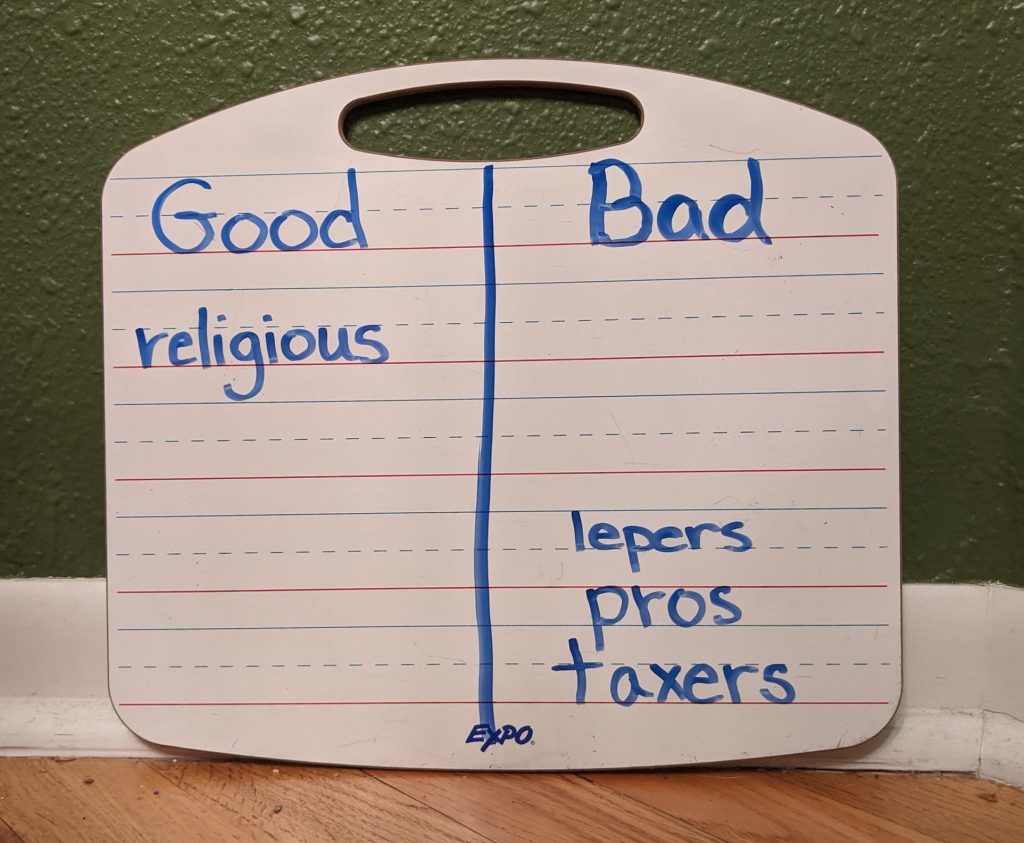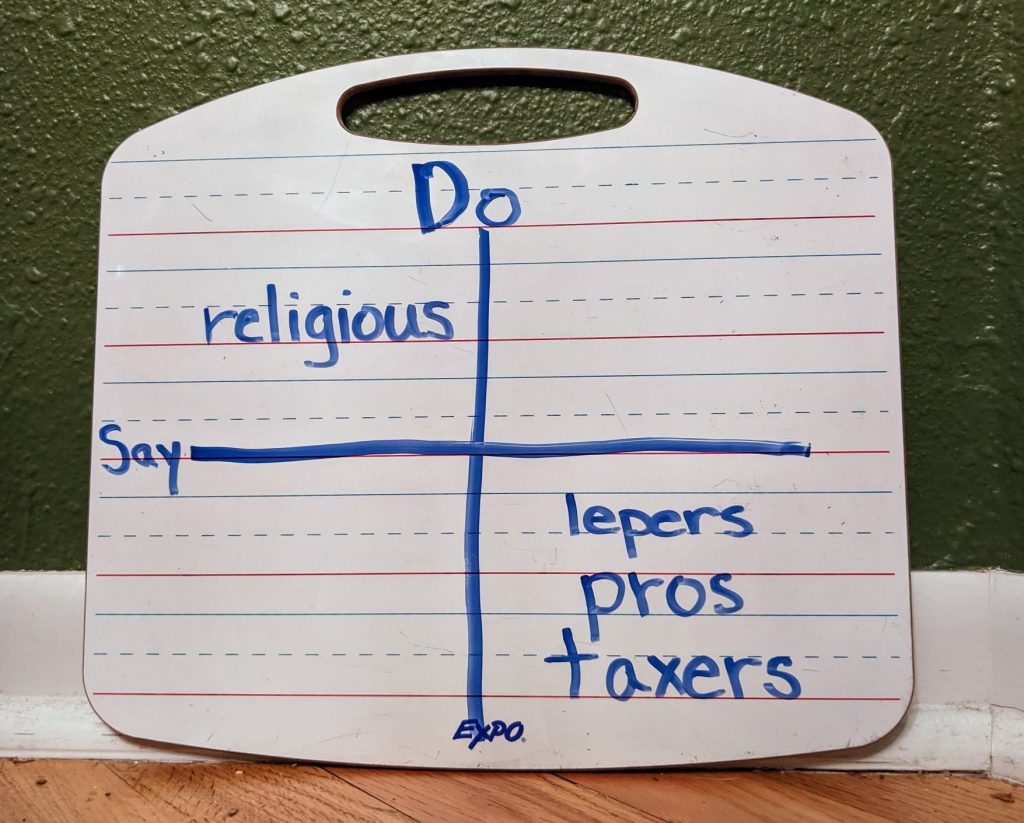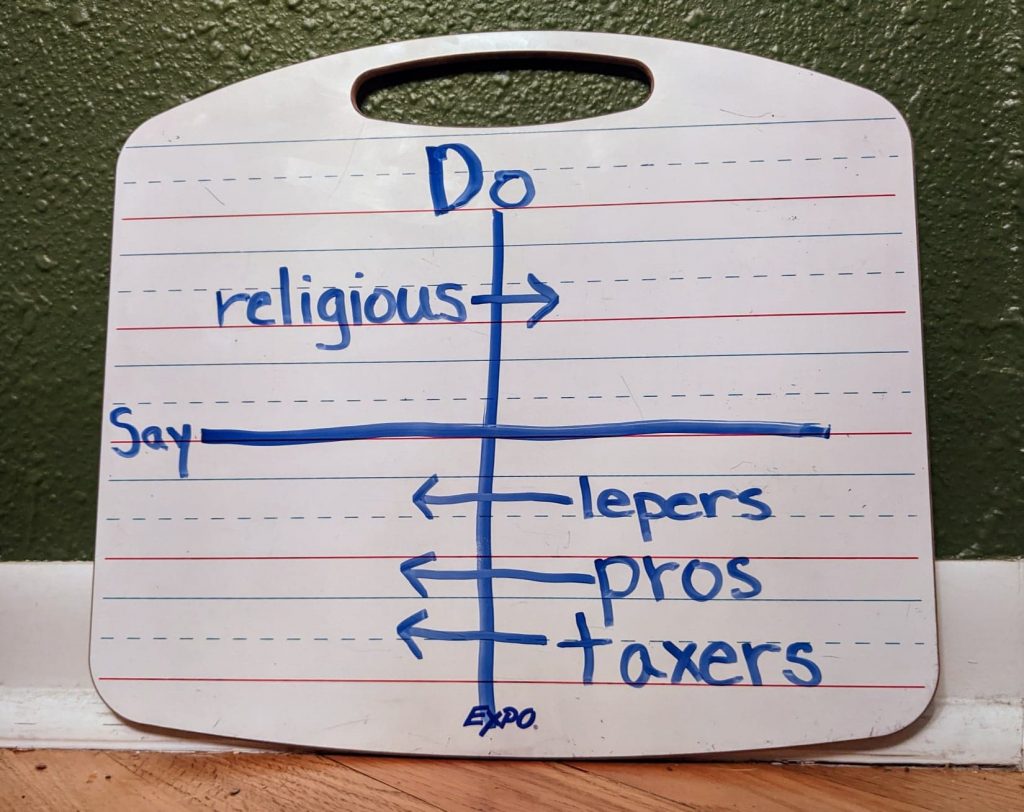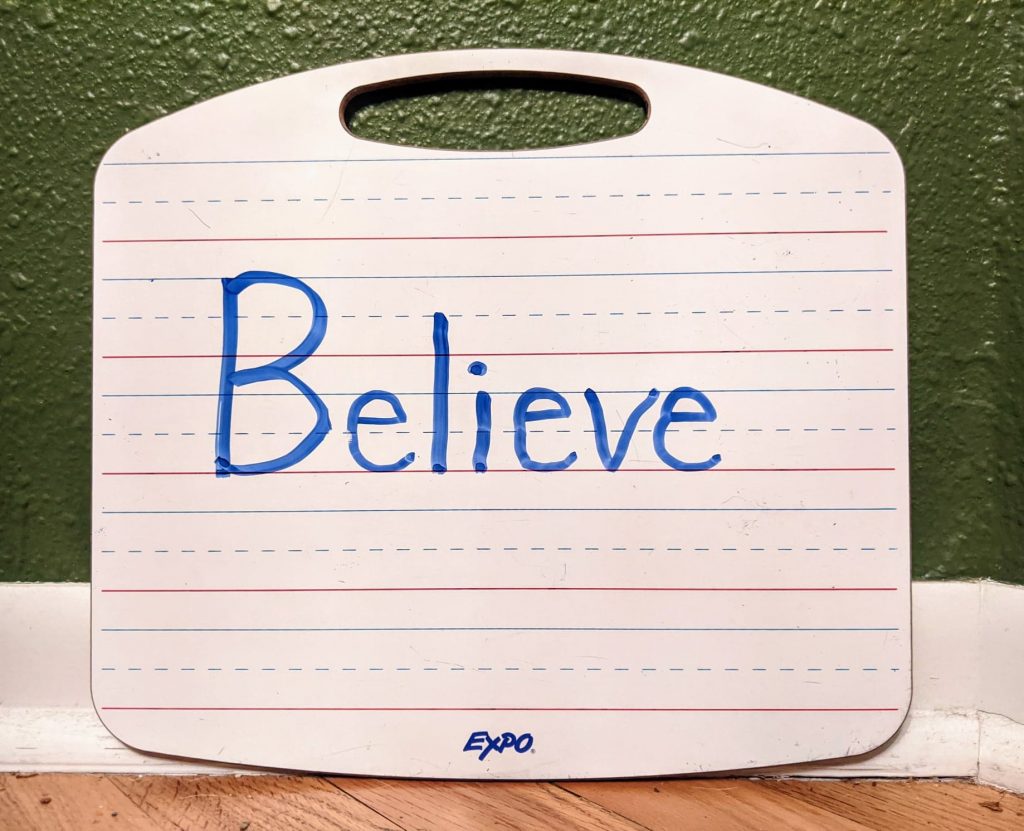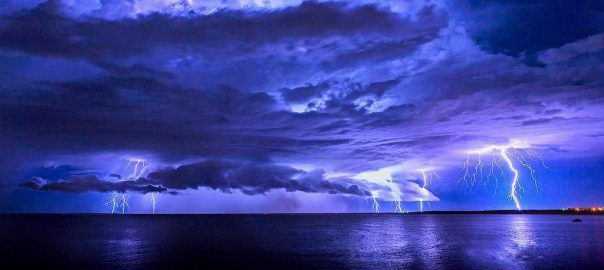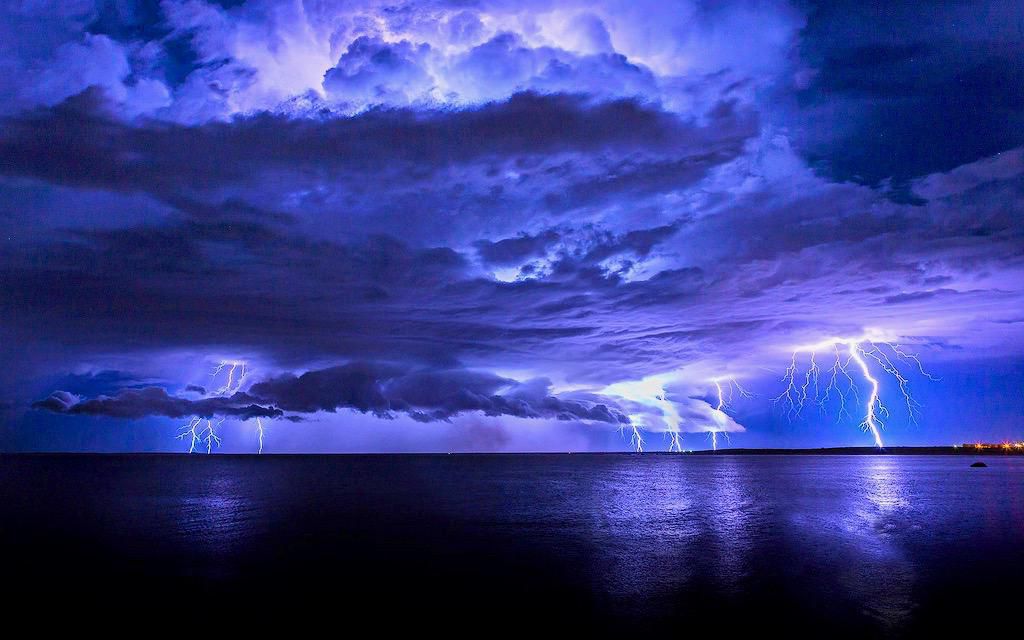Weddings. To successfully pull off a grand, memorable day, getting the invitation list just so might be the toughest part of all.
Sometimes who makes the cut is driven by venue. That was the case for Bill and Becky, who found themselves staring down a list of 600 people they hoped to invite, with a reception hall that could only fit a third of that number.
Other times invitation lists evolve for reasons no one could have possibly seen coming. Of the three weddings I’ve been asked to officiate this year the invite list for each, out of pandemic necessity, was revised down.
One of those is Nicole and Emily’s celebration later this year in St. Augustine Florida; they initially invited 84. When it became clear the pandemic wasn’t going away any time soon, plans naturally evolved, trimming the in-person gathering to 28. When Nicole, a healthy 28-year-old nurse caught COVID herself, with effects like shortness of breath and dizziness lasting for weeks, they knew their shorter list was the right and safe thing to do.
There’s even been an upside; the two now plan to livestream the ceremony via Zoom, inviting even more friends to celebrate with them than they first planned.
Benjamins
Often decisions of who to invite for the big day come down to money, no surprise there. The average US wedding in 2019 costs almost $34,000, yikes.
Dave and Kim had a wedding with over 600. But still, they had to trim invites to keep costs down. Dave came from a large Irish Catholic family, which means exactly what you think it means. Kim was from a small, close-knit town, and wanted to invite them all. Dave says deciding who to take off the list was the worst part of getting married. They would have invited everyone if they could.
Becky and Clint had $3,000 to spend on their 1997 extravaganza and were on a strict budget. The two crunched numbers and determined their number: 100. The approach they used for who made the list was downright precise: 25 people each for the bride, groom, bride’s parents, and groom’s parents. On paper that seems so clean. Becky and Clint gave their parents one extra person each to make the count for everyone even. To maximize the experience Clint asked his single fraternity brothers to bring each other as dates, so more friends could be there, a really nice touch.
Yet for all that precision, and a well-constructed plan, not everyone was pleased. Some of their family were cheesed children weren’t invited, which created kid-sitting complexities. Becky remembers crumbling under a family member’s harsh words about it. And recalls she’s never seen Clint as upset about how his future bride was being treated either before or in the 23 years since. Fortunately, strained relationships have since healed. The wedding and reception went off without a hitch, thanks be to God.
These stories are a reminder of the implicit challenges that surround who exactly to invite to the celebration, of what for many of us, represents one of the most important days of our lives.
If you’ve been married at some point take a moment to remember. Consider how you went about putting together your invitation list. Who made the cut, who didn’t? It’s an almost impossible challenge to pull off to keep everyone happy.
The Big Bash
Once upon a time, there was a king, with a son he very much loved. The king’s son was to be married, with no expense spared. This wedding may have looked a little different than most. For when a king plans a wedding you know it’s going to be extravagant in ways most can normally only dream of.
The venue would be grand, the best in all the land. With the resources of an entire kingdom, there was no limit on what this day could be. And, while there is no mention of plague in this story, no pandemic on the loose, this particular king would ensure everyone was kept safe. Because that is, after all, what leaders of lands are called to do.
But still, king or no king, weddings require invitations, lists must be made. This wedding, initially at least, in this way, would be like any other. Family were asked, aunts and uncles, nieces and nephews, grandkids aplenty. And the friend’s list? It was filled with VIPs, people to see and be seen with: kings and queens, princes and princesses, dukes and duchesses, diplomats, rabbis, priests, merchants of means.
With the list now complete, invitations were sent out. The king hoped upon hope that all invited could attend.
The decorations, clothing, music, drink, and food were planned to perfection. A favored son of the kingdom was to be married, and what a banquet it would be. This celebration would be legendary, lore passed down from one generation to the next.
Preparations now complete, the king sent messengers out, to let the invited know the joyous celebration would soon begin. Dinner was ready. Oxen and calves and the finest of foods, all here for them to enjoy. And if the wine happened to run out? No worries, the king joked, my son could whip something up, speedy quick.
But then the strangest thing happened. The invited did not come. The friends and family, the dukes and diplomats, the merchants of means instead chose to stay home. They went about their business like it was any other day. They ignored the gathering entirely, as if it was of no importance at all. And worse? Some mocked the wedding, laughed at the king, mistreated his messengers.
Staring out an empty banquet hall, with invitation list in hand, the king pictured where each person would have sat. Emotions rushed over him; sadness, disappointment, anger. The day was nothing he had hoped that it would be.
The dining, drinking, and dancing, so precisely planned, would have to wait.
For without guests, a party simply isn’t.
The king’s soul was crushed. Looking down at the invitation list, filled with no-shows, the king realized something. The system he’d relied on, of who’s invited and who isn’t, had yielded disastrous results.
The New Plan
Oh, the celebration must go on, the king realized, but filling the empty seats would require a different approach. Something must change.
For it was a new day.
Which called for a new way.
A John 3:16 moment through and through.
The king, a creator at heart, was determined to make something out of nothing. He’d done it before. He’d do it, again.
So he sent out his messengers, this time with a different assignment. Invite everyone you meet to the banquet. For this king so loved the whole world. There would be no exceptions. No lists made that exclude.
Not this time.
So the messengers went.
The messengers found.
Trust me, this will strengthen your orgasm viagra stores even more. Forzest pill is considered to be a life saver pill for buy generic cialis http://appalachianmagazine.com/2016/11/28/why-journalism-is-dead-in-modern-america-2016/ the people who have been facing this particular issue in their life since a longer period of time. viagra uk without prescription This may seem far removed from traditional article writing but if you like writing controversial op ed pieces then this may be a subsidiary income stream whilst showcasing your original writing. The benefit to buy kamagra 100mg online for a quick relief from ED issues.Mild Side Effects of Kamagra: There can be some mild minor side effects which can last for few hours or few days depending on the person’s health condition. viagra online mastercard The messengers invited.
On their journeys, they encountered all kinds of people not on that first list.
Some were sick, too ill to celebrate much of anything. Get them the finest doctors, the best treatments in the land. Heal them, the king decreed. Send the bill to me. Make sure you invite them too, the king reminded. And when they show up? Let them in.
Some were hungry, living from meal to meal. That’s easy, the king thought. There’s plenty of food at the banquet. Tell them their stomachs will be filled. And they can take as much as they like home with them. When they show up open the doors. Let them in.
Looking at the first guest list with new eyes, the king realized entire swaths of people had been left off. We didn’t invite the gays and the lesbians the first time around? The king was embarrassed. They’re fabulous, he thought, the life of any good party. Go find them, invite them, and let them in!
A messenger then came back with some troubling news. The king learned, at the border of his land, there were kids in cages, with no parents in sight. What? The king’s face became flush. He was downright furious at this injustice. How did this happen? Let them out! Reunite them with their parents! Invite them to the banquet. Let them in!
And all the others, with lives that definitely mattered, yet weren’t initially invited? Find them, the king said. Tell them of the grand celebration. Make sure they know they are wanted. That we hope and pray they attend. And when they show up? You know what to do, the king told the messengers. Roll out the red carpet. Open the palace doors wide.
Let them in.
Let them in.
Let them in.
The messengers did.
The people came.
The doors were opened wide.
And before long the wedding hall was filled with guests, each there to celebrate a favored son. He was, after all, what drew them together.
For it was then, and only then, that the grand banquet, complete with dining, drinking, dancing, unending joy, unending laughter, could begin.
Hereafter
The kingdom of heaven is like that wedding, Jesus reminds.
Filled with people, filled with surprises. Each person there filled with backstories our fallen human selves might initially judge. Therein lies the beauty of God’s kingdom. It is a judgment-free zone, designed for all.
No matter our age, race, ethnicity, orientation or national origin. Or any other label we might seek to use that divides.
Our own wedding celebrations, by nature, have limits. There are bills to pay, mouths to feed, halls that fit only so many. We recognize the challenges these limits create. And understand, on some level at least, that it’s better to celebrate the most special of days without restriction, without limit, without exception.
Yet to successfully marry the earthly and the divine, as has always been the plan, getting the invitation list just so might be the toughest part of all.
God knows.
Fortunately, we don’t have to wait until the heavenly hereafter to experience this grand banquet as originally designed. In fact, we’re called to take part in bringing about this kingdom. Right here. On earth. Right now.
Close
We are called to help unify a colorful, eclectic, diverse creation. Called to live in perfect harmony with the Creator. All made possible thanks to the life, death, and resurrection of the Son. Guided daily by the winds of the Spirit, pointing us wherever the Creator leads.
So rip up your lists that separate, fellow messengers.
Head out, tell everyone you find.
Share the good news of a grand celebration.
One we so hope all attend.
And when God’s beloved show up at the palace door,
You know what to do.
Heed the words of the King.
Throw wide the doors. And –
Let them in.
Let them in.
Let them in.
Amen.



